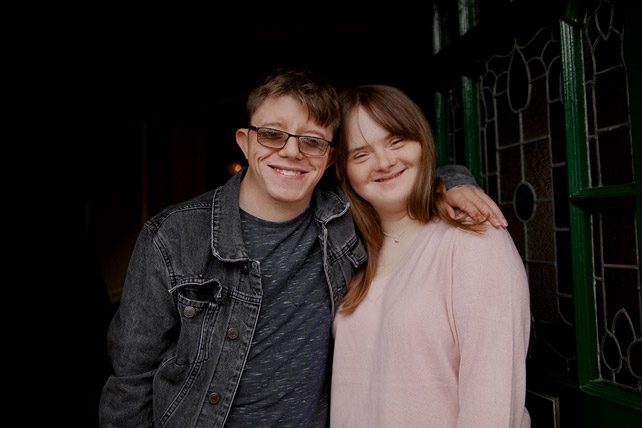In 1991, my husband Russ and I had our first child, a baby boy. To our surprise, he was born with Down Syndrome. I had no experience with special needs and no notion of what to expect. But in spite of the uncharted territory, our family continued to grow in love and in size. A few years later, shortly after relocating to the Bay Area to lead a church, our second son was diagnosed with autism.
Back then, inclusion wasn’t prioritized for children with Down Syndrome and many church communities just didn’t know how to best help the families of children with special needs yet. But I knew that God had a plan—or, more accurately, God showed me that he had a plan.
I found evidence of God’s desire for inclusion and the uplifting of those with special needs all over Scripture, and discovered God was inscribing it deeply upon my own heart.
“Speak up for those who cannot speak for themselves; ensure justice for those being crushed,” we read in Proverbs 31:8. Jesus also personally and repeatedly interacts with a range of people with disabilities in Scripture.
But a point many miss in Scripture’s treatment of the disabled is both simple and essential: Jesus makes it clear that it’s possible for those with disabilities to cause God’s love and wisdom to shine brighter. This can amplify and reveal God’s work.
Take the story of Jesus healing the blind man. His disciples, seeing a man born blind, ask him, “Was it because of his own sins or his parents’ sins?” Jesus rejects the notion of sin causing the disability immediately. He heals the blind man and tells them, “This happened so the power of God could be seen in him.”
Including and ministering to those with disabilities is beneficial for everyone. It teaches empathy and builds character. It’s also much easier and more important to foster an inclusive environment at church than most people realize. I know this because I’ve seen it come to life at our ministry here in the Bay Area.
If you want to change a church culture, start by empowering parents. After all, one in 36 children is estimated to have autism, and developmental disabilities more broadly are on the rise. The parents of children with disabilities too often feel isolated, particularly as their children age.
They don’t have to feel that way, though. They’re highly motivated to find other parents who understand their lives, who love their children and who can celebrate together with them. At Bay Area Christian Church, we’re blessed with a range of inclusive volunteer community programs that have exploded due to both parental and non-parental involvement.
Twenty years ago, Russ and I looked over an empty field and decided we’d try hosting inclusive sports programs there. For the sake of my boys—and for every other parent out there who felt the need for inclusion.
Today, our inclusive E-Life and E-Sports programs operate in 20 different locations with six different sports. It’s also grown, thanks to parents and volunteers, to include inclusive gardening, gaming, photography, dance, and even a pilot STEM class. Church members caught a vision of how to use their talents to serve the community.

